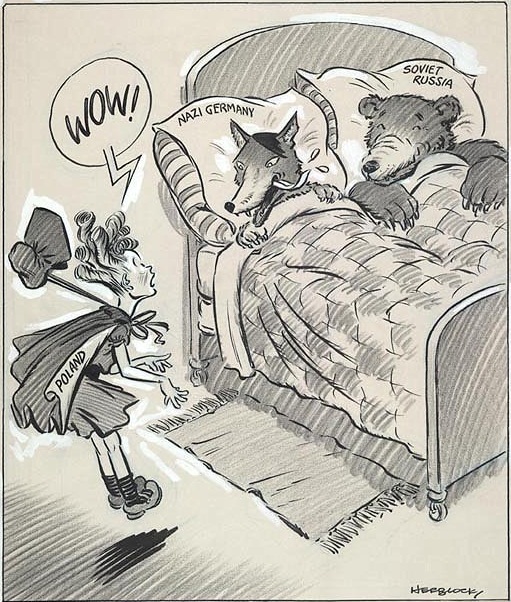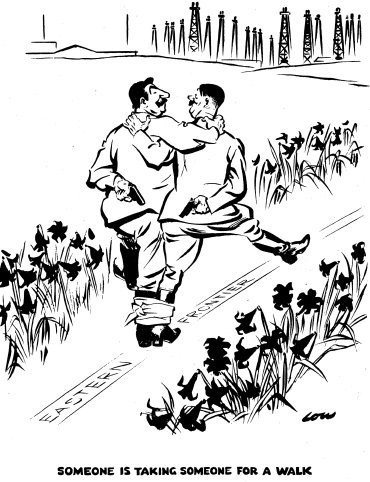
On August 23, 1939, four days after the economic agreement was signed and a little over a week before the beginning of World War II, Ribbentrop and Molotov signed the Nazi-Soviet Non-Aggression Pact.
This
agreement stated that the two countries - Germany and the Soviet Union - would
not attack each other. If there were ever a problem between the two countries,
it was to be handled amicably. The pact was supposed to last for ten years; it
lasted for less than two.
What was meant by the terms of the pact
was that if Germany attacked Poland, then the Soviet Union would not come to
its aid. Thus, if Germany went to war against the West (especially France and
Great Britain) over Poland, the Soviets were guaranteeing that they would not
enter the war; thus not open a second front for Germany. 

In addition to this agreement,
Ribbentrop and Molotov added a secret protocol onto the pact - a secret
addendum whose existence was denied by the Soviets until 1989.
When
the Nazis attacked Poland in the morning on September 1, 1939, the Soviets
stood by and watched. Two days later, the British declared war on Germany and
World War II had begun. On September 17, the Soviets rolled into eastern Poland
to occupy their "sphere of influence" designated in the secret
protocol.
Because of the Nazi-Soviet
Non-Aggression Pact, the Soviets did not join the fight against Germany, thus
Germany was successful it its attempt to safeguard itself from a two-front war.
The Nazis and the Soviets kept the terms
of the pact and the protocol until Germany's surprise attack and invasion of
the Soviet Union on June 22, 1941.
By: Angelina Galván
No hay comentarios:
Publicar un comentario